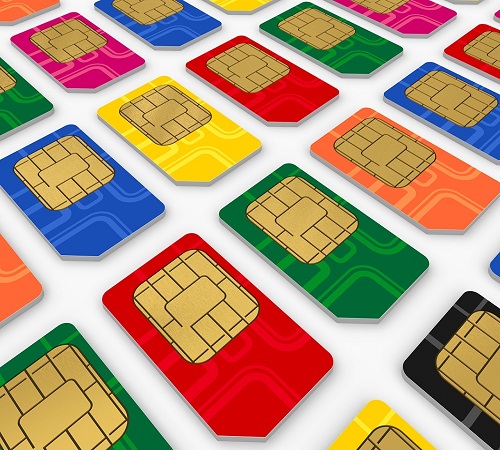Nigeria has been ranked as the 5th worst among over 150 countries by their SIM-card registration laws exploring data that is collected, what happens to the data and other restrictions such as number of SIM-cards allowed.

A recent report by Comparitech, an organisation which compares tech services around the world, Nigeria was placed alongside countries where invasive biometric data is mandated for SIM card registration particularly for the reason that the length of time this data is held by the collating body is unknown or unclear.
The report found Nigeria scoring 13 out of a possible 20 (20 being the worst score) thanks to, among other things, the collection of biometric data.
With fresh reports that National Identification Numbers (NIN) may soon become necessary for SIM registrations, it is important to start asking how well the telcos and the industry regulatory agency, Nigerian Communications Commission (NCC) have structured their agent networks to ensure sensitive data does not fall into wrong hands.
With more than 5.1 billion global mobile phone users accounting for some 70 percent of the world’s population, a number of governments have looked into implementing SIM-card registration laws to prove identity and collect user data, writes Comparitech.
Mandatory SIM-card registration with real name and personal details is necessary in most countries, but governments lack transparency when it comes to data use.
The laws for subscriber identification module (SIM) registration in Nigeria and fourteen other countries are considered the most invasive in the world, according to a new study by Comparitech, an online platform that provides tech research.
The study examines privacy in mobile phone usage in 150 countries and how national governments impose SIM-card registration laws to collect data on their citizens.
The report identifies the requirement of biometrics in the registration process as one of the factors that determine the level of intrusiveness of the laws.
Nigeria is among countries that currently have biometric registration laws.
According to Comparitech, SIM-card registration in Nigeria requires both fingerprints and a facial image.
Other countries with biometric requirement in the registration process are China, Tanzania, Saudi Arabia, Singapore, Tajikistan, Thailand, Uganda, United Arab Emirates, Afghanistan, Bahrain, Bangladesh, Benin, Oman, Pakistan, Peru, and Venezuela.
Tanzania is at the top of the ranking of countries with the worst SIM-card registration laws, scoring 19 points out of the maximum of 21 points. Next on the ranking is Saudi Arabia (17 points), followed by North Korea and Uganda (15 points each). Lebanon, Pakistan, Singapore, and Sri Lanka have a score of 14 points; while Nigeria, Bahrain, Bangladesh, China, Myanmar, Tajikistan, United Arab Emirates scored 13 points.
Other indicators used in the study to determine the level of intrusiveness of SIM-card registration laws include whether the data collected is stored by telecommunication providers or shared with government agencies; the requirement by law enforcement to gain access to the data; for how long the data is stored; and whether or not there are data privacy protection legislations.
Apart from biometrics, photo ID is a requirement to sign up for phone service in some countries. Other requirements are a permanent address, date of birth, nationality and gender.
“In China, anyone registering a new phone number now needs to submit a facial scan. This is also happening in Singapore,” said Paul Bischoff, a tech writer at Comparitech.
According to the report, while most countries require mandatory SIM-card registration, this requirement does not exist in about 45 countries and jurisdictions. Countries without mandatory SIM-card registration laws include United Kingdom, United States, Bahamas, Bosnia and Herzegovina, Cabo Verde, Canada, Croatia, Denmark, Finland, Hong Kong, Ireland, Israel, Mexico, Portugal, and Sweden.
Discussing how SIM-card registration threatens people’s privacy, Bischoff said, “Creating a database of citizens and their mobile numbers restricts private communications, increases the potential of them being tracked and monitored, enables governments to build in-depth profiles of their citizens, and risks private data falling into the wrong hands.”
Comparitech said mandatory SIM-card registrations also pose the risk of identity theft and abuse of data. Criminals can use someone else’s photo and personal information to sign up for a new SIM, potentially causing a lot of trouble for the impersonated individual.
The tech researchers also said without laws to protect registration data, people’s personal details can be shared with other third parties, such as advertisers and tax collection agencies.
Since 2011 when the Nigerian Communications Commission (NCC) launched its nationwide compulsory SIM card registration, the process has continued to unravel like a taut game of hide and seek between the commission, telcos and the millions of subscribers across the country.
From 2014 when the commission rejected the data of about 37.79 million subscribers citing inconsistencies in the collected data to 2019 when reports quoted the NCC as saying 63.2% of the total registered SIM card registrations in its database was invalid, a figure the commission denied.
Over the years, NCC has continuously embarked on awareness programmes urging Mobile Network Operators (MNOs) to sensitise their dealers/agents to desist from fraudulent SIM registration activities.
Source: commweek










